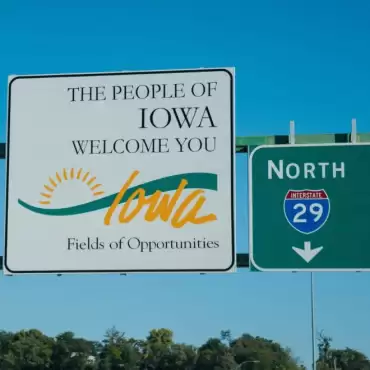If the Georgia general assembly is to become the first in 2024 to legalise sports betting, it will have 15 hours, 59 minutes to do so, beginning at 8am EST Thursday (28 March).
The House Higher Education Committee today (27 March) failed to vote on a package of bills that would legalise statewide mobile sports betting. The hitch, once again, is how to spend the funds the state will get from the new revenue stream.
The session is scheduled to end Thursday night. The committee will meet two hours before the full house meets at 10am local time. No matter how you slice it, Thursday sets up a sports betting sprint.
The decision not to vote Wednesday was the second this week, after the Higher Education Committee laid the bill over Monday (25 March). So far, the committee has had three hearings, dating back to 19 March, and at least one cancelled meeting.
Senate sponsor Bill Cowsert is set to introduce an amendment that will appropriate 15% of tax revenue for problem and responsible gambling initiatives. There is currently no money specifically earmarked for those programmes in the constitutional amendment.
That number would be the highest of anywhere in the US if the amendment passes and it represents $150,000 per $1m in tax revenue that would be tagged for gambling addiction.
Representative Sam Park, who sits on the Higher Education Committee, will offer an amendment that would send 5% of tax dollars to problem and responsible gaming programmes. The balance of the tax revenue would be used to support voluntary pre-K programmes and for programmes for those who earn less than the state’s median income.
The amendments are competing, so lawmakers will have to choose which direction they want to go, as it would be contradictory to vote for both.
Two-thirds majority needed
Because Cowsert’s bill is a constitutional amendment that would send the ultimate decision to voters, a two-thirds majority is required to pass SB 579. Neither party has a two-thirds majority, so the vote will have to cross party lines.
Assuming the committee approves the bills – SB 386 is the enabling legislation – they would then have to pass the house floor before going back to the senate, or possibly a conference committee, all in one day. It has been done before, but Georgia lawmakers don’t seem to have a consensus on what legal sports betting should look like, so it’s no sure thing in the Peach State.
"Data has shown that 1/3 of gambling addicts will possibly attempt suicide…If Georgia were to expand gambling such as casino gambling or sports betting we could see as much as a 110% increase in gambling addiction."
Read more:https://t.co/MOjE5c9Irf #StopSR579 #StopSB386 pic.twitter.com/tWY7O6UdUj— Moms Against Gambling (@NOGamblinginGA) March 26, 2024
Besides that, on the final day of the session, there are already 150+ bills on the house calendar, so whether or not legal sports betting is a priority will come into play. Sources tell iGB that the process of getting to this point has been fraught, that leadership in both chambers is frustrated at the inability to compromise and that there is a real possibility that the proposals could be shot down or not voted on.
The House Higher Education Committee Wednesday spent about an hour discussing proposals that were assigned to it at least a month ago. The discussion again centred around how tax dollars would be spent.
Lawmakers clearly want the bulk of funds to support educational programmes – at issue is which ones. The options are funding merit-based HOPE scholarships, need-based scholarships, pre-K programmes or school lunches.
Surrounded by wagering states
Georgia lawmakers nearly legalised wagering in 2021, but the Democrats withheld votes over a controversial voting rights bill supported by Republicans. In that time, two key states in the region have launched sports betting – Florida and North Carolina.
GEORGIA: with lawmakers gathering soon to discuss the future of #sportsbetting, here is a not so subtle reminder that there is huge demand for legal betting in the state. Data from @GeoComply since the launch of the NC market through the Sunday night NCAA games. pic.twitter.com/8s2Z10trm5
— John A Pappas (@yanni_dc) March 27, 2024
The North Carolina launch was two weeks ago and demand has been high – the North Carolina Lottery said handle for the first week was $198m and unadjusted gross revenue was $42.7m, which should translate into about $4m in taxes.
In Florida, the Seminoles launched their Hard Rock Bet platform last November.
So, set the alarm and lace up the sneakers for Georgia’s sports betting sprint.





